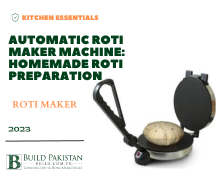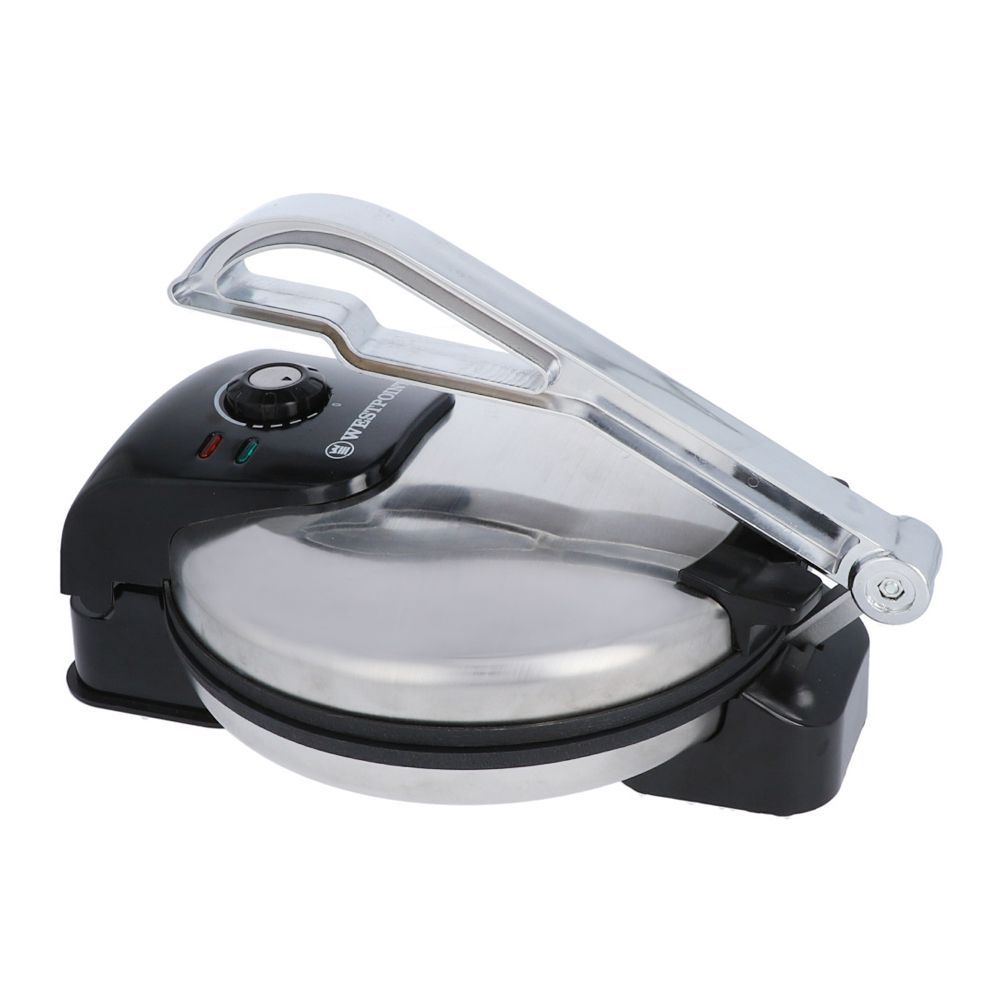Automatic Roti Maker Machine: Homemade Roti Preparation

Introduction:
The
traditional process of making rotis (Indian flatbreads) can be time-consuming
and labor-intensive. However, with advancements in technology, the introduction
of automatic roti maker machines has transformed the way we prepare rotis at
home. In this detailed and comprehensive blog, we will explore the features,
benefits, working mechanism, price range, and factors to consider when
purchasing an automatic roti maker machine
Understanding Automatic Roti Maker Machines
Automatic roti maker machines are innovative
kitchen appliances designed to simplify the process of roti-making. These
machines combine the convenience of automation with traditional techniques to
produce perfectly round and evenly cooked rotis. They consist of a compact unit
with heating elements, a non-stick surface, and a motorized mechanism that
rolls and cooks the dough.

Features of Automatic Roti Maker Machines
Non-Stick Surface:
The non-stick surface prevents the dough from sticking, allowing easy rolling and removing the prepared roti without any hassle.
Adjustable Temperature Control:
The temperature control feature enables users to adjust the heat according to their preference, ensuring properly cooked and evenly browned rotis.
Dough Preparation:
Some models include a dough preparation feature, where the machine kneads the dough automatically, saving time and effort.
Size and Thickness Settings:
Advanced roti maker machines offer size and thickness settings, allowing users to customize the roti's size and thickness as per their preference.
Timer and Indicator:
Machines equipped with timers and indicators notify users when the roti is ready, preventing overcooking or undercooking.
Safety Features:
Automatic roti maker machines often include
safety features like heat-resistant handles, automatic shut-off mechanisms, and
overload protection.

Working Mechanism
The working mechanism of automatic roti maker machines involves a few simple steps:
Dough Preparation:
Users need to prepare the dough by mixing flour, water, and any desired ingredients. Some machines offer the convenience of dough preparation within the machine itself
Dough Division:
The machine divides the dough into small portions, ensuring equal-sized rotis.
Rolling:
The motorized mechanism of the machine rolls the dough portions into round and uniformly thin rotis.
Cooking:
The rolled roti is placed on the heated non-stick surface, where it cooks and puffs up due to the applied heat.
Removal:
Once the roti is cooked, it can be easily
removed from the non-stick surface using the provided handle or a separate
tool.

Benefits of Automatic Roti Maker Machines
Time-Saving:
These machines significantly reduce the time and effort required to make rotis compared to the traditional manual method.
Consistency:
Automatic roti maker machines produce uniformly round and evenly cooked rotis, ensuring consistent quality every time.
User-Friendly:
The machines are designed to be user-friendly,
making them suitable for both experienced and novice cooks.
Energy Efficient:
They consume less energy compared to cooking
rotis on a stovetop, making them energy-efficient and cost-effective.
Versatility:
Some models offer additional functions like making puris, parathas, and other flatbreads, increasing their versatility in the kitchen.
Price Range and Considerations
The price of automatic roti maker machines can
vary based on the brand, features, and quality. Entry-level models are
available at a more affordable range, while advanced models with additional
features may be pricier. When purchasing an automatic roti maker machine,
consider factors such as brand reputation, customer reviews, warranty,
durability, and after-sales support.
Conclusion:
Automatic
roti maker machines have revolutionized the process of making rotis at home,
offering convenience, time savings, and consistent results. With their
innovative features, user-friendly operation, and versatility, these machines
have become a valuable addition to modern kitchens. By considering the
features, price range, and factors mentioned in this blog, you can make an
informed decision when choosing an automatic roti maker machine that meets your
requirements. So say goodbye to the traditional manual rotimaking process and
embrace the efficiency and convenience of automatic roti maker machines.









